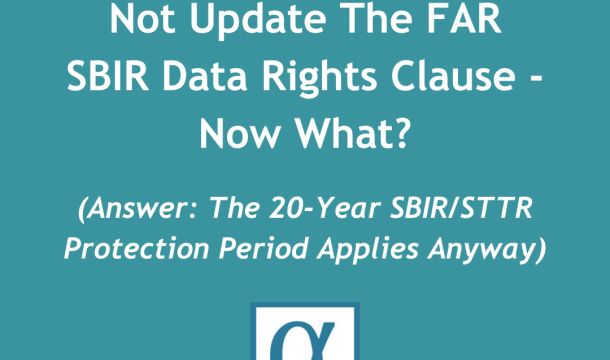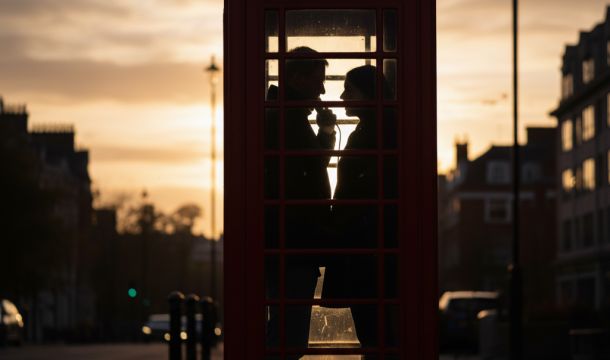The GovCon Bulletin™
GovCon Legal Round Up™ - March 18, 2021
GAO BID PROTEST DECISIONS
In re MidAmerica Fab and Machine, LLC -- Costs (Released March 16, 2021)
GAO denied a request for recovery of bid protest costs even though the agency (Defense Logistics Agency) decided to take corrective action in response to the GAO protest by cancelling a purchase order and making a new award decision. GAO denied the request because the agency did not unduly delay taking corrective action but, rather, took action and requested dismissal of the protest before the date the agency report was due. (Read decision here.)
In re Omni2Max (Released March 16, 2021)
GAO denied a bid protest in a procurement involving an agency's (Navy's) effort to charter a vessel. The solicitation required offerors that did not own or charter vessels to provide “supporting evidence” of their “legally enforceable right” to purchase, lease or charter a vessel. GAO upheld the agency’s decision to exclude from competition an offeror that submitted letters of commitment signed by the vessel owners and charterers because the commitment letters did not contain features of a legally enforceable contract or option. (Read decision here.)
In re Mission1st Group, Inc. (Released March 16, 2021)
GAO denied a bid protest by an offeror whose proposal was eliminated from consideration by the agency (Army) because it included current, but not expired, ISO 9001:2015 certificates when the solicitation required evidence of certification for the two years prior to the submission of proposals. GAO rejected offeror’s arguments that its expired certificate was not actually required by the solicitation and, alternatively, that the agency should have followed up with a request for its expired certificate. (Read decision here.)
In re Rotair Aerospace Corporation (Released March 12, 2021)
When an agency (DLA) issued an RFQ that did not include the offeror, the offeror filed a bid protest with the agency arguing that it should have been identified as an approved source of supply. The agency dismissed the protest as untimely because it was not filed with the agency prior to the closing of the solicitation. The offeror’s subsequent protest to GAO was also found untimely since a GAO protest is untimely if an original protest filed with an agency is untimely. The GAO also noted that even if the protestor’s filing with the agency had been timely, the filing with GAO would still be untimely because it was filed more than 10 days after the agency’s decision to dismiss. (Read decision here.)
In re People, Technology and Processes, LLC (Released March 8, 2021)
GAO denied the bid protest of a company whose proposal was determined by GSA to be untimely, even though the offeror uploaded its proposal and all attachments to GSA ASSIST as of 4:00:52 pm - exactly at the 4:00 pm deadline for submissions. The offeror purportedly was logged off the system while uploading the attachments and when it realized its submission might be late it e-mailed its proposal and attachments to the contracting officer, who received them at 4:01 pm. GAO agreed with the agency that e-mail submissions were not authorized and that, despite the fact that the offeror uploaded its files in ASSIST, the offeror nevertheless did not complete its proposal submission. Consequently, the offeror could still have made changes to its uploaded proposal and, thus, never fully relinquished control of its proposal. (Read decision here.)
In re Vectrus Mission Solutions Corporation; Vanquish Worldwide, LLC (Released March 8, 2021)
In a rare decision sustaining a bid protest, GAO sided with an offeror whose bid was subjected to an upward adjustment by an agency (Army). In responding to an RFP for a cost-plus-fixed-fee requirement, the offeror proposed to absorb some costs. During evaluation of the bid, however, the agency made an upward adjustment to the offeror’s bid to reflect the cost that the offeror agreed to absorb. GAO concluded that since the offeror made a legally binding promise to assume liability for the cost reduction it proposed, the agency should not have made the upward adjustment. GAO consequently recommended that the agency make the award to the protestor and reimburse its protest costs, including reasonable attorneys fees. (Read decision here.)
U.S. COURT OF FEDERAL CLAIMS DECISIONS
Colonna's Shipyard, Inc. v. U.S. (March 11, 2021)
After GAO dismissed an offeror’s bid protest against the agency (Navy), the offeror filed its protest with the U.S. Court of Federal Claims (COFC) alleging that the agency was arbitrary and capricious in making the award to another bidder and that the agency breached an implied contract of fair dealing. Besides challenging the agency’s evaluation of its proposal, the offeror also challenged the agency’s use of Simplified Acquisition Procedures (SAP) under FAR Part 13 and argued that it received no notice that SAP applied to the procurement. The COFC rejected the offeror’s bad faith claims and its evaluation and scoring challenges. With regard to SAP, the COFC determined that the agency never represented that FAR Part 15 would control, that the agency complied with FAR Part 13 requirements, and that FAR contains no requirement that an agency notify offerors that it intends to make an award pursuant to SAP. (Read decision here.)



